This post is lengthy and probably looks best in your e-mail, so hit subscribe in the right hand side-bar. To see the review of our first year of homeschool, check out this post.
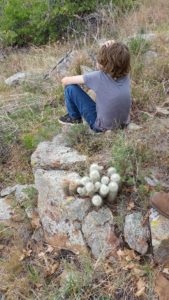
This year was off to a better start than the last because we knew what to expect. In my planning, I had everyone (except the littles) sit down and talk about the routine. We agreed on a time for Julius to get up and do chores before sitting down in his nook to work on assignments. We also agreed that he’d work very mindfully to get all his “book work” done before noon. Then he had 1-2 hours to focus on whatever computer-related assignments he had.
Our life in general was more consistent and so it was easier to make this routine work. This year was the first in which all our walls, roof, and at least one floor of our earthbag home is completed. Everyone in the house knew that mornings were big brother’s focus times and that he should not be bothered. We didn’t follow a Monday through Friday routine; instead, every 5 days that he worked consecutively, he earned a free day. We actually did not adjust the routine at all throughout the year, like we did last year. Other homeschool moms will appreciate the “aha” moments when a family gets a rhythm going and everyone knows what to expect. Everything goes so much more smoothly and work gets done. I’ll start with the year in lists, and then go into details.
The Book List
These books are only what I assigned for him. He also read a bazillion other books of his own choosing.
Lord of the Flies William Golding
The Canterbury Tales Geoffrey Chaucer
And Then There Were None Agatha Christie
Shakespeare Stealer Gary Blackwood
The Midwife’s Apprentice Karen Cushman
Fahrenheit 451 Ray Bradbury
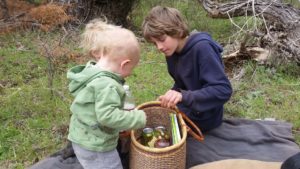
Outings
Lord of The Flies production put on by an all female cast at the Oklahoma Children’s Theater in Oklahoma City
Shakespeare in the Park’s production of A Midsummer Night’s Dream OKC
Artscope 2 week theater and visual arts camp
Renaissance Fair in Muskogee, OK
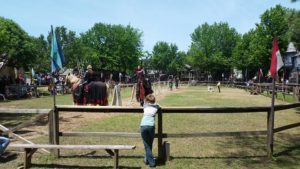
Flight School in Oklahoma (one day with actual flying lessons!)
Museum of the Great Plains, Lawton, OK
Factory Obscura Art Installation “Shift” immersive art experience, 2017 OKC
Factory Obscura Volunteer Day for next installation: “Beyond” 2018 OKC
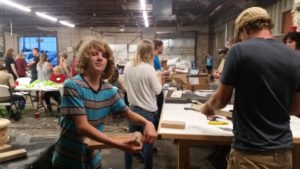
Possum Jam Music Festival May, 2018 Graham, TX
Parkstomp Bluegrass Music Festival, 2018 Medicine Park, OK
Alabaster Caverns State Park camping and tour, September 2018 Freedom, OK
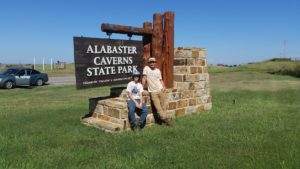
Other Life Skills
Lots of babysitting
Mowing grandparents lawn and managing money earned
Changing the oil on our car
Cooking
Washing dishes
Daily journaling
Cattle herding and fence repair, grass management in Rotational Grazing
Video gaming (Zelda, Breath of the Wild & Minecraft)
Shooting, butchering, marinating and dehydrating his first deer
Visiting with a great-grandparent with Alzheimer’s (huge lessons in empathy)
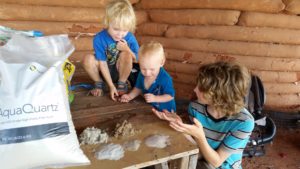
Prominent Interests and Curiosities
Gaming (Nintendo Switch)
Coding for video game design
Chemistry, which he called Potions at the beginning of the year
Money: how to earn it, and how to invest it to earn more
Glassblowing
Rocks and Minerals
Botany and the uses of plants for medicine
Travel within in the US and a romanticized idea of hitchhiking
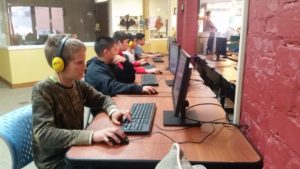
On to the details!
What we “Covered”
Now, as of late, I’ve been learning more about the detriment of clearly defined subjects and how real learning doesn’t fit neatly into these boxes. However, we are new to this homeschooling thing, as are most parents when they begin and so a transition from the public school mindset is perfectly normal, I believe. That being said, I did want to emphasize 4 major subject areas to help everyone in the family have a clear expectation of, and language for what learning material Julius was absorbing. These subject areas were History, Math, Language Arts, and Coding.
History
This year, we focused on the early middle ages up through the Renaissance. We used Kingfisher’s History Encyclopedia again, because of it’s concise descriptions of events and people and wonderful illustrations. Julius had been taking notes in a paragraph format and we both noticed through his sloppy handwriting and lack of important details that we needed a different approach. I looked into a few different note-taking styles and decided to show Julius how to take notes with the Cornell method. Once he got the hang of it, he liked the organization and how much easier it is to not have to write complete sentences.
I struggled with enforcing the note-taking. What’s the point of taking notes if you’re not going to use them to study for exams or tests? On the IEW Podcast episode 154, Andrew Pudewa talks about the value of note taking and how writing ideas down on paper helps to retain them in the long term, especially if you have to re-word and synthesize them. This forces you to really own the material. He was also able to utilize the notes for our History Jeopardy game, which was a big hit.
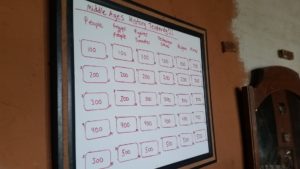
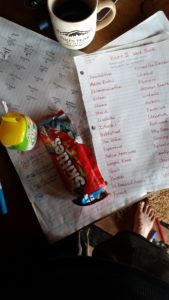
History Jeopardy was really fun because Daddy joined in, so there were two teams, and I was Alex Trebek. It actually took me about 4 evenings of 2 hours each to think up and design the game, going through the history book and his notes and pulling out questions, or rather, answers. I still didn’t have it super organized when we played, but everyone was patient and I took note so that I can devise an improved version next year. Daddy wasn’t allowed to study, only to use the historical knowledge he retained from his public school education, which was pretty good because he won both rounds. We all learned a lot and had an excellent family experience.
The Renaissance Festival in Muskogee, Oklahoma was a real treat as well, rich in historical relevance. The boys got to watch some jousting, blacksmith work, glassblowing, and 15th century Scottish dancing.
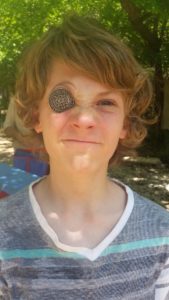
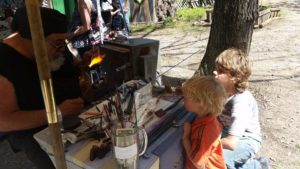
Math
While he typically gets quite a few wrong, Julius seems to enjoy math. We used Saxon Math 7-6. Here’s a little secret: the school edition and answer book are almost exactly the same as the homeschool edition, I found after making some purchases and returns to Amazon. There is one major difference: the school edition answer book does not have answers for the Investigations. So if you happen upon a free copy of the school edition like I did, keep it! If you want to do the Investigations and have the answers for them, buy the homeschool edition answer book.
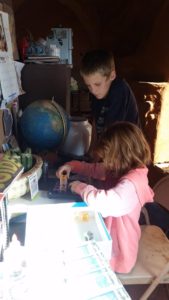
I got Life of Fred Decimals and Percents, but Julius showed no interest in that this year. Maybe next year. Our library had a book sale which turned into a book giveaway and from that we picked up a nifty book called Leonardo’s Mirror & Other Puzzles by Ivan Moscovich. Together, we worked through several of the puzzles as a break from the Saxon monotony. The Fibonacci sequence is now fully understood and retained in our brains.
Language Arts
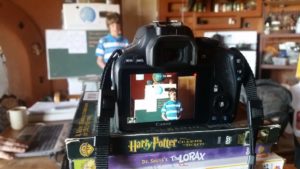
This year, I really felt that Julius would benefit from learning the skills necessary to prepare, organize, and present a speech. I wasn’t sure how to go about getting him an audience, until it occured to me to record the presentation on the DSLR camera. That way, we could share it with friends and family, and here on the blog (with his permission of course). I gave him some examples of topics, and made it clear that his speech would cover some aspect of his history study, but other than that, I let him come up with his own speech.
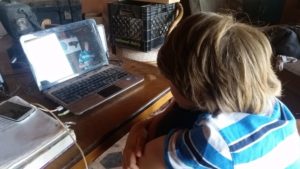
At times, he was totally disgusted by the idea of giving a speech, but eventually relented after I explained that he wouldn’t have to write or type the speech. Note cards would suffice. It took some prodding for him to gather enough information on his chosen topic, the Polynesian explorers, but he succeeded.
We also partnered together on the organization of a written report. I felt it really important that he learn research skills and organization of information, so I urged him to write the “dreaded elementary report” Julie Bogart talks about in The Writer’s Jungle. He chose wild hogs as his topic and did an excellent job working in small chunks to get the big project done in a timely manner. It amazed me how much his writing ability improved from last year. I had to resist urges many times to “correct” his sentence structure and the order of the presentation of his information. I had to tell myself to trust him and his writing process. It’s about the process, not the product, I kept telling myself. If I altered his papers to fit my writing style, what would he learn? And, after several drafts, he surprised me with the clarity and flow of his paper.
Latin only lasted a few months this year. Perhaps it was the choice of books. We used Hans Orberg’s Prima Latina Per Se Illustrata Pars 1: Familia Romania, a book written fully in Latin about Roman history. The reader is supposed to decode the words by taking hints from the pictures, footnotes, and captions. I could tell from the moment he started that it wasn’t the right approach. There was no writing element, or at least I didn’t require one and he didn’t have the desire to write anything down. I also didn’t require any narration or discussions about the reading. That meant that he was deciphering a difficult text with no active engagement. No reinforcement, no retention. That was a big lesson for both of us. I’m not going to push him to attempt more Latin studies, but I’m not going to remove the books from his desk area shelf either.
Our 6th grade Language Arts year was topped off with some good old grammar and sentence structure material from the Comprehensive Curriculum workbook. I find these workbooks to be ultra boring, but he likes them. Perhaps because they are short and sweet.
Coding
While I was super involved in his Language Arts studies (it’s my jam) I was barely even a spectator when it came to coding. He and his dad talked about which books and websites would be best, made a routine, and did the work. The routine was more or less 2 hours a day, and keeping with the routine that after 5 consecutive days of work, he gets one day off. He impressed me when I needed help with a certain game he created within a coding course. During this year, he passed online courses in HTML, CSS, Javascript, and PHP through W3Schools.com. He used Codecademy.com to learn a lot of Python. The books The Linux Command Line and Get Coding were also major sources of study.
More Subjects that Didn’t get Daily Attention
Art
If I could make art happen more often, I really would. In my mind, arts are of such high importance, it really surprises me how little we get done. I keep telling myself not to feel guilty; we still have 2 kiddos under 5 to deal with, so painting on canvases and paper mache sculptures simply can’t happen every day. I was aiming for once a month art deep dives, but we actually got in 4; Lorenzo Ghiberti, Giotto, Botticelli, and Da Vinci. These included reading about the artists, and making an art work in their style.
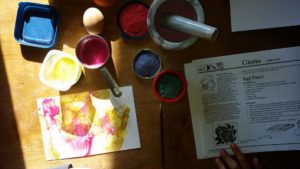
Because we didn’t make art happen at home, we made it a priority elsewhere. A nearby town offers free Saturday morning art classes once a month, so we made a couple of those. And, the same group offers a 2 week long day camp for performance art in the summer. Students could actually choose visual arts, theater, or dance. Julius wanted to do visual arts at first, but I convinced him that theater would be a better fit because of his high energy and outgoing personality. He got to do plenty of visual arts as well, but being up on the stage was very empowering for him.
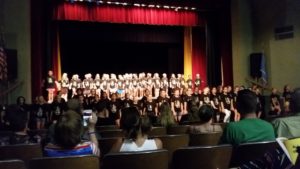
He came home after the 2nd day of camp and highlighted all his lines. After the 4th day, he told us he’d memorized all his lines and would be picking up a second part! He played a farmer and Romeo in the production Everyone Gets Abducted by Aliens. Yes, even Romeo and Juliet got abducted. In this camp, there are students and counselors in training (CITs), who attend camp for half price and have the responsibility of assisting the younger campers. Julius was enamored with a couple of those older kids and can’t wait to go to camp as a CIT.
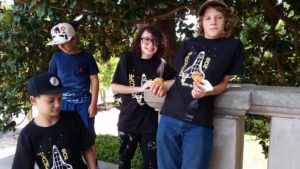
Science/Chemistry
We relied on Kingfisher’s Science Encyclopedia and note-taking for the basis of our science curriculum. We did a handful of science experiments, mostly chemistry related. Toward the end of the year, Julius cracked open the C3000 Chemistry set! We plan to do a lot more of that next year.
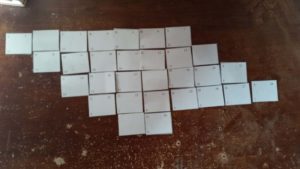
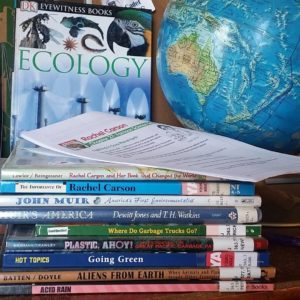
Shakespeare
You know what’s awesome? When you go on a mother-son date to a Shakespeare in the Park theater production of a Midsummer Night’s Dream and your kid recites several of the lines he’s memorized. What a blast! If you’ve been on the fence about purchasing Ken Ludwig’s How to Teach Your Children Shakespeare, go ahead and do it. Together we learned a great deal about the life and times of the Bard and memorized some lines.
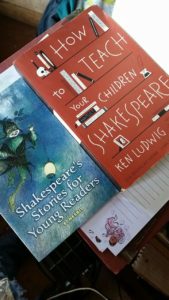
Empowering Education
One of the many benefits of homeschooling is being able to learn and discover things that most public schools leave out, such as being able to recognize and deal with your emotions. Learning different ways to breath, understanding the workings of the brain, and fostering mindfulness are concepts I never heard of in my public school education. These are some essential life hacks that many adults don’t practice, and many never even consider. My aim is to explore these invaluable resources so that my kids leave home with plenty of empathy, emotional awareness, and self control. This program, Empowering Education, was a gift from a friend. It is designed for the classroom, so it takes a bit more preparation, but I feel that it is a huge benefit to our family.
Gratitude, Acceptance, and Visions for the Future
I am so grateful for the ability to home-educate my children. While there are so many exceptional teachers out there, our system of public education does not often allow them the freedom or the pay to fully immerse themselves in their careers. This means that so many schools fall short of equipping students with the skills and love of learning that they will need “in the real world.” For these reasons, I am so blessed to have a lifestyle free enough, and the support and resources available to immerse myself in providing as many opportunities as possible to cultivate a love of learning in my children. What a blessing that is!
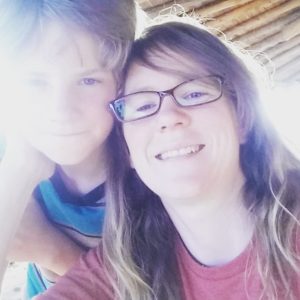
This year has been a transformative one as far as relationship building. I feel like we have become quite a strong family unit because we know how to interact when we are together constantly. This is something our lifestyle forces; the ability to listen, empathise, and understand each others’ strengths and weaknesses. Each year of our homeschool journey cultivates more of these skills. I am eager to continue this journey as Julius’ guide and I am excited to see what opportunities blossom for him and how he will respond, given the roads we’ve travelled together.
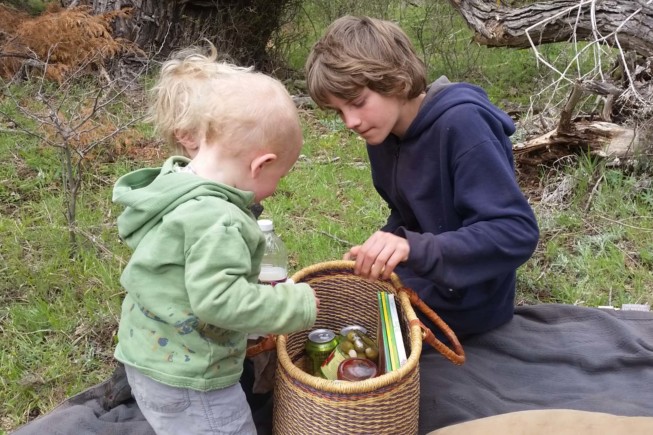
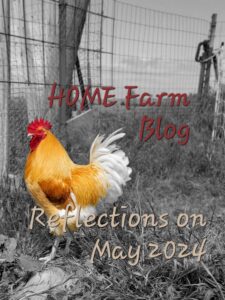
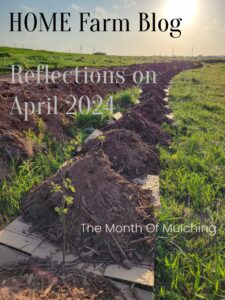



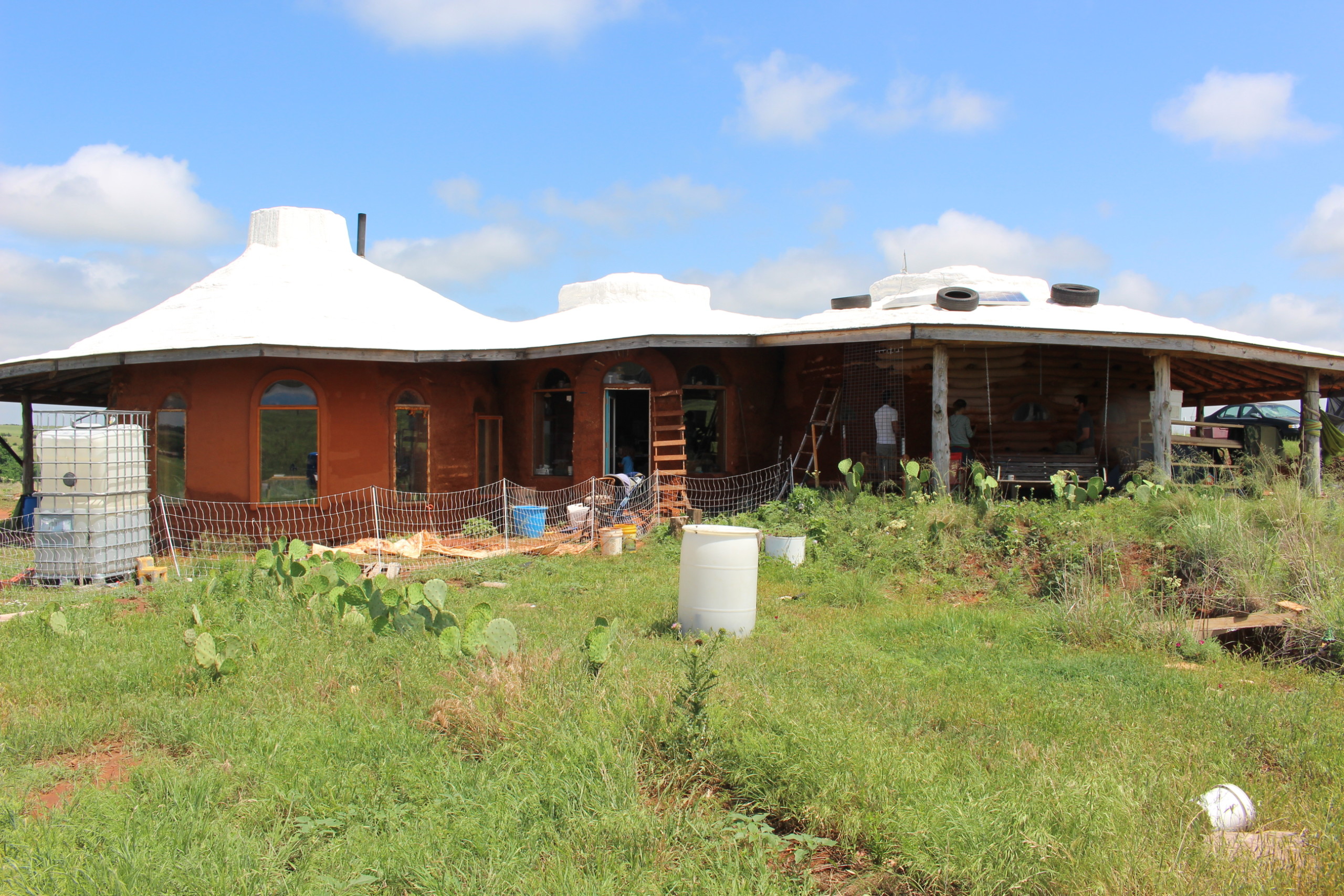

1 thought on “Homeschool Journal: 6th Grade Review (2017-2018)”